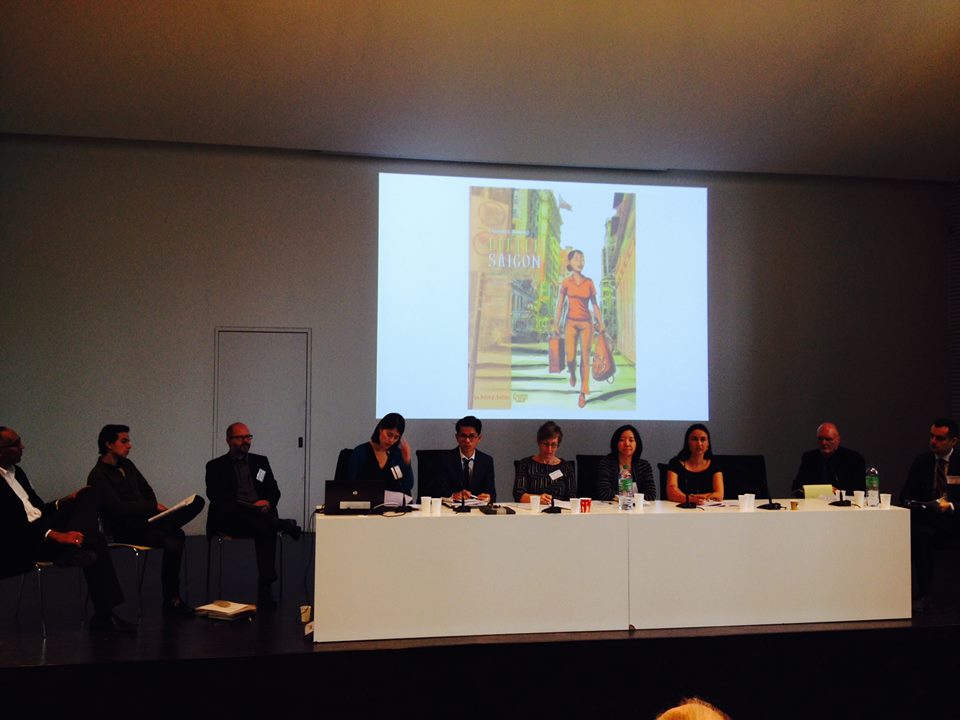April 1, 2014
Janette analyzes alternative engagements with history in the Vietnamese American novel

History is a problem for diasporic Vietnamese American writers. For the past 35 years, mainstream American culture has had a hard time imagining Vietnam as other than the name of a war Americans fought. Following this logic, mainstream America has seen Vietnamese Americans, even those obviously too young to have been part of that war, primarily through this traumatic and militarized lens.
Many Vietnamese American writers have expressed their frustration with this overdetermination, including Monique Truong, author of two novels, "The Book of Salt" in 2003 and "Bitter in the Mouth" in 2010. The current project of literary critic Michele Janette, department head for women's studies and associate professor of English at Kansas State University, explores Truong’s novelistic engagements with alternate histories, specifically those of flight pioneers Orville and Wilbur Wright, enslaved poet George Moses Horton, and the first Anglo baby born in North America, Virginia Dare.
Janette presented a portion of this project in early March at an international conference on the Vietnamese Diaspora in Literature and Film, titled "'I Virginia Dare You:' Monique Truong's Revisioning of History" in Paris, France. She will present another part of the argument next month at the annual conference of the Association of American Studies, titled "Real Men: George Moses Horton and the Wright Brothers in Bitter in the Mouth" in San Francisco, Calif.
Janette argues that Truong tethers her work to historical foundations that are located on the North American continent rather than the Southeast Asian subcontinent, and that are illustrative of creative production rather than traumatic destruction. Further, by comparing "Bitter in the Mouth" to the historical source that Truong cites for this novel — "North Carolina Parade" by Walser and Street published in 1966 — Janette identifies three interventions that Truong offers not only to re-articulate historical content, but to alter historiographical method.
Drawing on the work of postmodern and queer theorists Linda Hutcheon, David Eng and Jose Munoz, Janette characterizes Truong's literary interventions into history as:
- Historiographical metafiction, in which characters and the narrator of the novel offer their own critiques of what makes it into the historical record and what gets left out;
- Historical catachresis, a form of deliberate misnaming in which a historical fact is changed or source is misquoted in order to disrupt stultifying patterns of received thought;
- Affective utopianism, which rejects the ostensible goal of objectivity for historical accounts and purposefully depicts the imagined emotions, passions and desires of historical figures.
These strategies combine intellectual and emotional registers to move readers beyond what Munoz calls the "affective force field of the present." Engaging history in ways that are both corrosive and generative, caustic and lyrical, alienated and ecstatic, Janette argues that Truong's novel rewires our hearts and minds away from the over-determination of military trauma to wider horizons of historical investigation and future imagination.
